#Personifications
Explore tagged Tumblr posts
Text
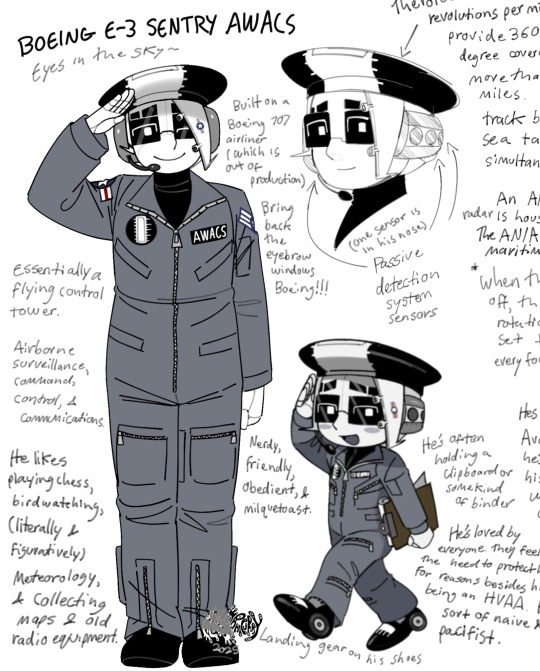
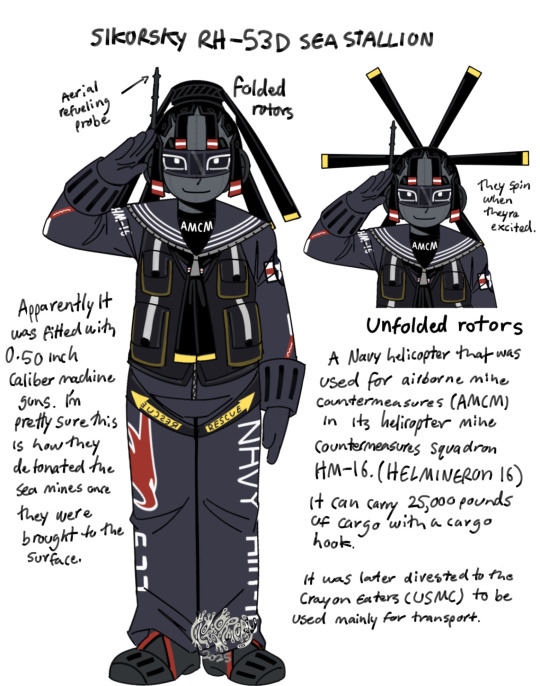
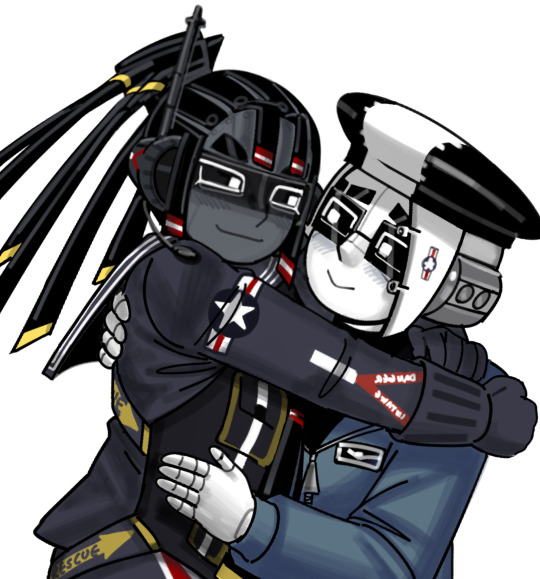
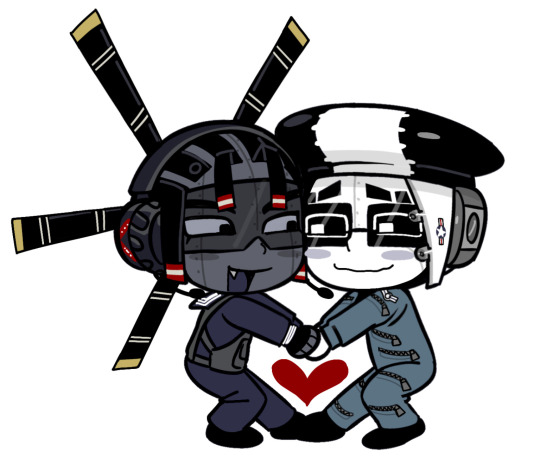
Sentry and Stal got refs!
#awacs#art#digital art#oc#character design#original character#digital illustration#my oc#oc art#my ocs#gijinka#gijinkas#humanizations#personifications#helicopter#plane oc#avdroids
46 notes
·
View notes
Text
Almost every time I see a personification of St. Petersburg he's portrayed as Moscow's brother, which makes me giggle because they're barely connected even compared to some other cities 😭 Not like it's bad or smth it just doesn't have any historical basis
They actually don't have much connection in general other than being a current capital and a former capital... And being big cities, yeah
I can make a x5 times bigger list of how they're different than of their similarities
Though they're kinda silly like that too! I have a moot whose Moscow and SPB ocs are brothers and it's cool
25 notes
·
View notes
Text
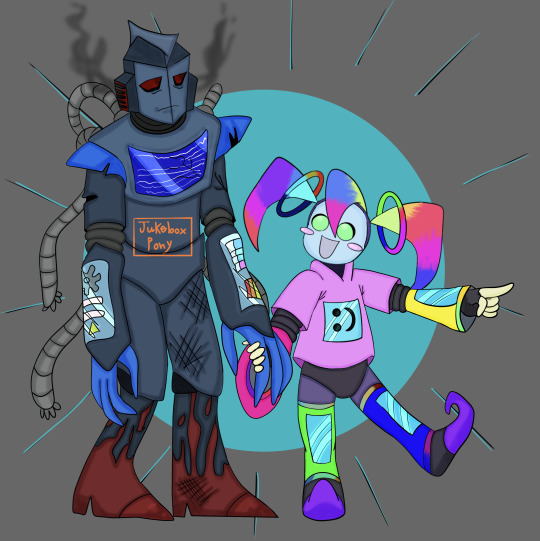
Art Fight friendly fire for @bamsara of their characters, Arson and Misdemeanor. Arson is their laptop personified, and Misdemeanor is their desktop PC personified. They’re older brother and younger sister.
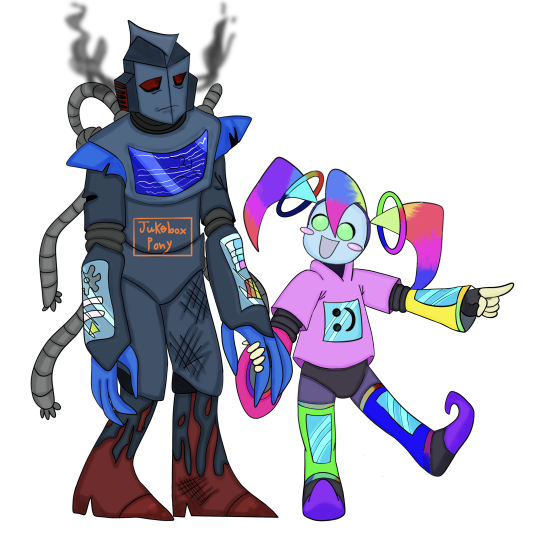
Bonus transparent version.
#ArtFight#Art Fight#ArtFight2025#Art Fight 2025#Team Crystals#TeamCrystals#Friendly fire#Art Fight friendly fire#ArtFight friendly fire#Bamsara#Art Fight Team Crystals#ArtFight Team Crystals#Art#Artwork#Digital art#Robots#Robot art#✏️#Robot#Personifications#Personification#Transparent art#Ocs#Original characters#Oc art#Original character#Oc artwork#Procreate#Small artist#Siblings
8 notes
·
View notes
Text
actually you know what? Antarctica headcanons:
can speak a ton of languages but is noticeably broken in all of them, also has a unique accent
in my world a countryhuman's eye colour(s) come from Thier flag or the most common eye colour for Thier citizens to have if they have no flag, but since Antarctica doesn't even has citizens, they just no irises what so ever, like Thier eyeballs are pure white. I'm realising this might not sound like a big deal but my countryhumans design for the most part just look like normal guys so it's extremely hard not to notice
sheltered but doesn't really act in the way you'd expect. Most people on Antarctica are scientists doing research, which caused Antarctica to learn about super high level concepts but struggle with basic things.
very friendly and energetic
another consequence of Antarctica have no official citizens is that despite Antarctica being known about, they didn't form into existence until people physically step foot into Thier land, though they claim they somehow had a consciousness before then
completely immune to the cold but wears clothes anyways
#countryhumans#Headcanons#countryhumans headcanons#personifications#Personification headcanons#Countryhumans Antarctica#Antarctica
9 notes
·
View notes
Text
So I just saw a post about the theory that Ali was simply a personification of Arabia and that has me thinking now as a Hetalia fan....
#lawrence really fell for an immortal being in this interpretation lamooo#tbh historical accuracy wise Ali wouldn't probably encompass the whole arabia region as one but#hes some kind of personification#t. e. lawrence#te lawrence#lawrence of arabia#lawrence x ali#sherif ali#sherif ali ibn el kharish#personifications#personifs#hetalia#aph hetalia#personifposting#hetalia world stars#crossover??
8 notes
·
View notes
Text
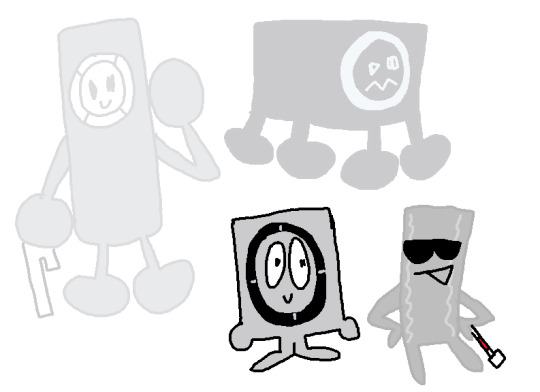
nov 2022
shuffled
#not totally gijinkas... why don't we go with#personifications#character design#ipod shuffle#ipod#encountersltdart#note: i don't endorse apple. these have been discontinued a while now but it's the principle of the thing
6 notes
·
View notes
Text
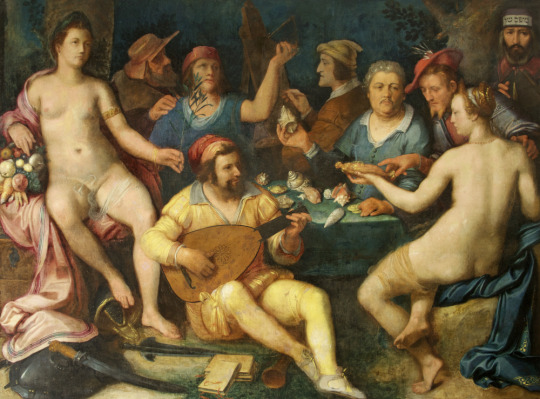
Allegory of the Arts and Sciences with a Portrait of Jan Govaertsz. van der Aar (after Cornelis van Haarlem)
Artist: Isaac Seeman (Polish, 1739-1751)
Date: 1746
Medium: Oil on canvas
Collection: National Trust Collections, London, United Kingdom
Description
This painting shows Jan Govertsz. van der Aar (Leiden 1544/45 – Haarlem 1612), a merchant from Leyden, shown seated at the table, holding a shell, surrounded by personifications of the Arts and Sciences.
#allegorical art#personifications#arts#sciences#allegorical figures#cornucopia#olive branch#flourishing of the arts#helmet#symbols#allegorical scene#table#music#nude figure#men#women#costume#drapery#painting#oil on canvas#fine art#oil painting#artwork#polish culture#polish art#isaac seeman#polish painter#european art#18th century painting#national trust collections
5 notes
·
View notes
Text
My OCs
July, June, April, November, January
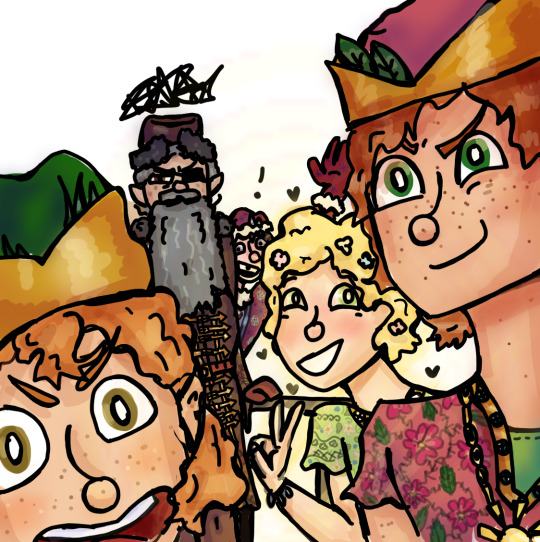
These are my little guys <3
#they are all such guys#these have been spinning in my head for a year#personifications#oc#oc art#june#july#november#january#the twelve months#slavic fairytale#april#charcter art#digital art
3 notes
·
View notes
Text
I finally finished this fic after weeks and weeks!
Taihoro pulled her helmet off as she made her way down the dock, shaking out her teal-streaked dark hair. The lighthearted fun of the World Series was over, racing with the rest of the Class of 2024 with no real consequences. Now, as her cohort fought to knock each other out of the Louis Vuitton Cup, for Tai and Team New Zealand, there was only endless in-house practice— simulations, solo runs, and racing with her older sister Te Rehutai.
And in her ear, always the voice of—
"Taihoro?" A dark-haired shipboy stood on the dock in front of the young AC-75, clipboard in hand. With his mirrored sunglasses pushed up into his bushy dark brown hair, she could see Black Magic scrutinizing her for any sign of injury or weakness, his pale blue eyes as sharp and cold as usual. Sky blue like hers, like almost all sailfolk of the Team New Zealand family. Brian Murray was her much-older brother— or perhaps a cousin once removed or uncle at this point— but during the workday, all that mattered was that he was her coach.
7 notes
·
View notes
Text
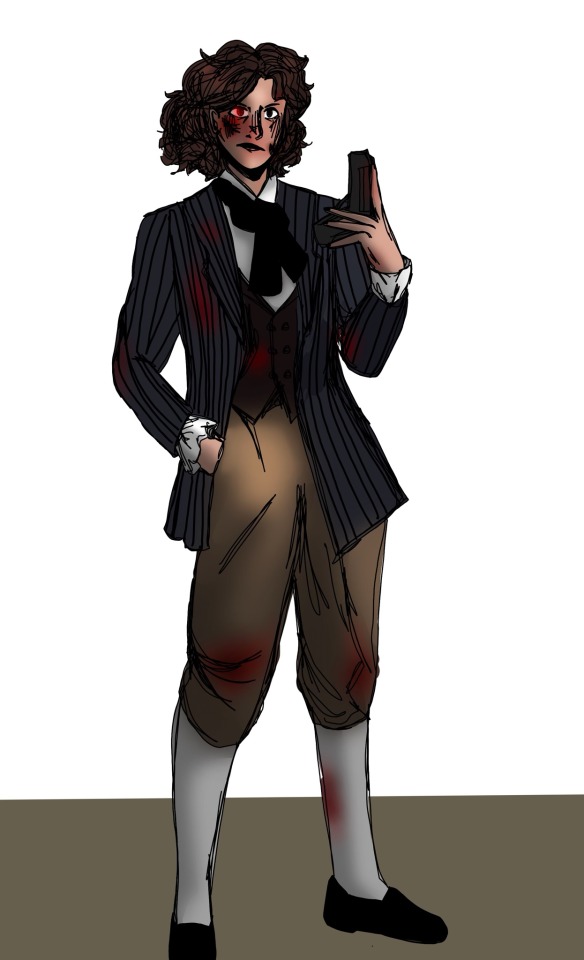
Massachusetts at the Boston Massacre
64 notes
·
View notes
Text
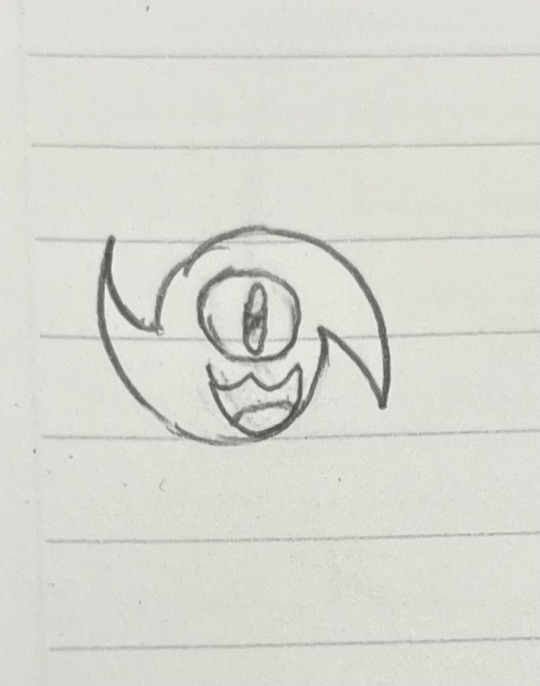
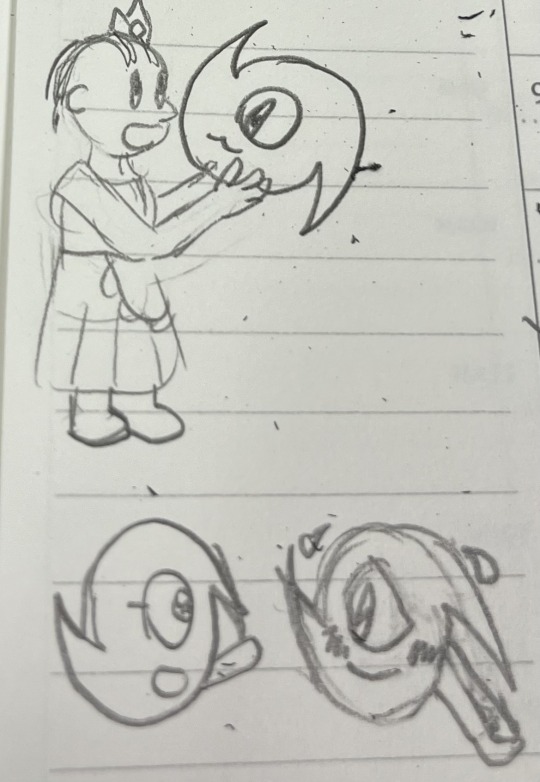
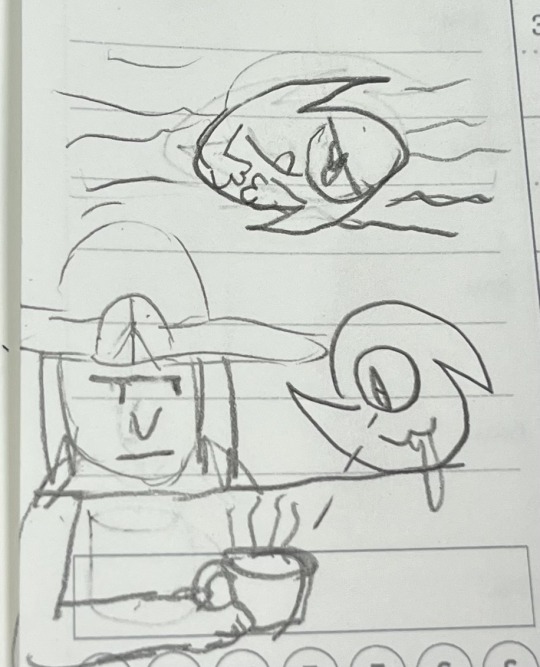
I realized I didn’t have a miniature form for Hurricane Harvey so I designed one. I imagine he’s light blue with a yellow-green eye.
Shown in the second and third sketches:
Being held by human! Tropical Storm Allison
Trying to talk to mini Hurricane Carla without showing too much his crush on her (and failing)
Relaxing on the surface of the ocean after having stuffed himself silly with warm seawater
…and deciding after all that, he still wants Melissa’s hot tea.
I do intend as my next color drawing to show all the forms of Harvey and Allison, their miniature, full size, and humanoid forms. They appear at the end of the Allies of Gaia part 1, but only as their human forms.
The miniature forms are basically meant to be my attempt at a chibi hurricane. Since they don’t have heads or bodies like a human, this mostly looks like making them stylized like hurricane symbols and having big shiny eyes.
7 notes
·
View notes
Text
I've fallen down a rabbit hole of Gaelic deities and personifications and I am having so much fun its unreal
My favorite so far has been Lir (or Ler!), who is the personification of the sea - his name quite literally means 'Sea' in Old Irish and I have to respect a fellow who's straight to the point.
Something I found fun was that his son's name is Manannán mac Lir, which translates to "Son of the sea" and is that such a cool flex. Like 'Hey, I'm very obviously the son of the massive, powerful, terrifying body of water that makes up 97% of the Earth' THATS SO NEAT DUDE BUT IT IS NOTED THAT I SHOULD NEVER ANGER YOU EVER
#irish mythology#welsh mythology#deities#personifications#Edit - I feel validated on my stance because it seems in Gaelic myth Manannán takes over Lir's position of whatever he does as the#personification of the sea and id just like to say I will be wary when nearing the ocean upon any given point in my life from now on#manannán mac lir
34 notes
·
View notes
Text
fuck it all the important fundamental shit is done have this idiot in its entirety. i have attempted to make a system whose laws are written to reflect reality rather than writing the laws first and then trying to figure out how they apply. rip it apart
#personif meta#personif gen#hetalia#wttt#countryhumans#satw#paris burning#the city we became#socialstuck#fandomstuck#personifications#nat’s personifverse
3 notes
·
View notes
Text
one last post before new years
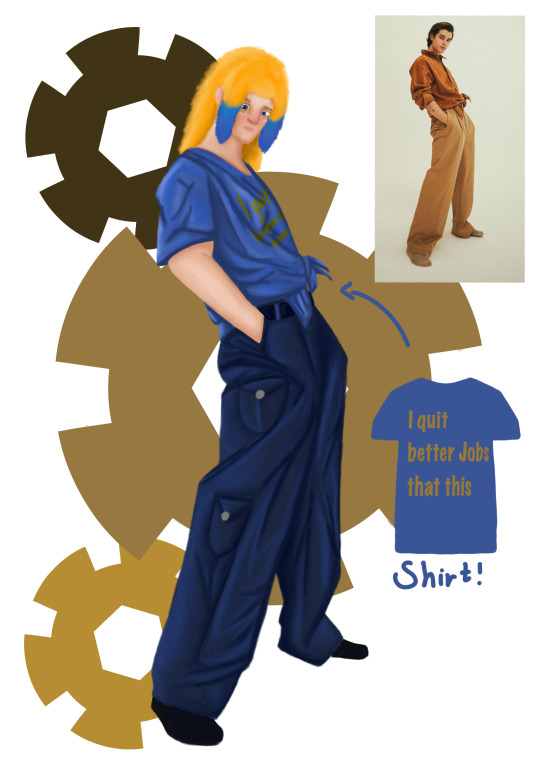
#art#football#soccer#bundesliga#turning the rat human#personifications#personal#this exist because of an artslump where everything exept drawing clothes made me hate myself so-#my art#digital art#artwork#artists on tumblr#oc artwork#ignore his stupid hair physics aint real
5 notes
·
View notes
Text
You know, I always questions why the hell does any of the personifications ever have the urge to like take over the world? Like, what's stopping them and making sure they don't take over the human race?
I highly doubt they would ever listen to governors cause they are just mere humans. Or maybe it's the fact they represent a country, it could maybe have a bad effect?
But I would be down to read a fanfic when the states/countries just completely say fuck it, I'm gonna run the state, the way I want it.
18 notes
·
View notes
Text
"Eukleia represents the personal qualities that brought a person a good reputation, as well as the reputation itself. Mythic genealogies for her come late: Ploutarkhos (Aristides 20.5) mentions she was the child of Herakles and Myrto, but Euripides notes that Ponos (Labour) was her father (fr. 474 N2): … In earlier Greek literature, eukleia refers to the glory and fame that results from military victories (Homeros, Ilias 8.285 and Odysseia 14.402). Eukleia’s meaning as the good reputation of private individuals becomes more prominent in the literature of the second half of the fifth century, and is particularly prominent in the works of Euripides (for eukleia in Hippolytos see Braund, 1980: 84-85). She is personified in Classical Athenian literature to the degree that she owns, holds, or bestows a wreath or crown, as in Sophokles’ Aias (462-465), produced in 442 or 441, when Aias bemoans his bad fortune: And how shall I present myself and appear to the eye of my father, Telamon? How will he bear it when he sees me naked, without the prize of the best and the bravest, for which he himself held the great crown of Eukleia? Sophokles’ ‘crown of Eukleia’ (στέφανος εὐκλείας), also worn by Theseus (Euripides, Hiketides 315), is recalled in the words of Bakkhylides, who calls Eukleia’ φιλοστεφάνος, ‘lover of the wreath’ (Bakkhylides, Epinikoi 13.183; see also Bakkhylides, Epinikoi 1.184 and Dithyramboi 15.54; and Pindaros, Isthmionike 5.22). With or without a wreath, Eukleia could bestow a good reputation on someone, through birth and/or marriage, as well as victory. In regard to ancestry, eukleia therefore takes on aristocratic connotations (Metzler, 1980). She was involved in marriage preparations, at least in Boiotia, Athens’ neighbour and long-term rival, where she was worshipped as an epithet of Artemis (Shapiro, 72 chapter six 1993: 70-78; Kossatz-Deissmann, 1988c). Ploutarkhos notes that Artemis Eukleia had an altar in each Boiotian marketplace (see also Sophokles, Oidipous Tyrannos 161; Schachter, 1981: 102), and that boys and girls who had become engaged would make sacrifices to Eukleia in preparation for their weddings (Ploutarkhos, Aristides 20.5-6)."
- Polis and personification in classical Athenian art by Amy C. Smith
4 notes
·
View notes